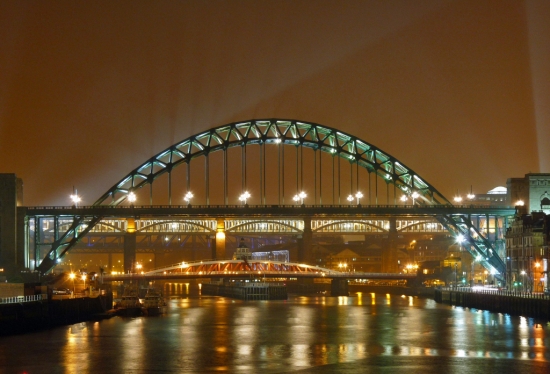Newcastle University has unveiled is vision of urban sustainability by committing £50m to making the city a “living laboratory” of future technologies.

The pioneering plan, which could take two decades to complete, involves building a Science City on the site of former Scottish and Newcastle brewery and a £2m Cloud Computing Centre serving local businesses. There will also be a Government-funded open energy storage test bed.
Newcastle City Council has already designated and renamed the 24-acre site Science City which it jointly acquired in 2006 in a three-way partnership with the university and One North East. Each body contributed £8m toward buying the land.
Since then researchers have been compiling a business plan to present to the university, explained Professor Phil Taylor, the director of Newcastle Institute for Research on Sustainability. “The university could see it was a good way for them to invest strategic funds and that we would get great returns through fantastic research outcomes, collaborations with industries and from other partnerships,” he said. “This investment by Newcastle University will make sure that it stays competitive nationally and internationally.”
Newcastle’s sustainable vision includes the integration of a number of different disciplines and research projects to allow future cities to be developed in a holistic way. Over the next ten to 20 years, on-going teams of engineers, scientists and digital researchers from the university will work with the public to learn what they need to improve their everyday lives and use findings — together with information on energy systems, environment and mobility from hi-tech sensors across the city — to compile data they hope will make the city more efficient.
The long-term plan is to link up with other “smart cities” to share data and adopt best practices perfected around the world. Initially there will be links closer to home. “We are working with Northumbrian Water on urban drainage systems and how to make those sustainable and how to avoid flooding in the city,” said Taylor. “We are also working with Northern Powergrid to build a smart grid, which is an intelligent electrical system that allows you to integrate electric vehicles, heat pumps and renewable energy in a low cost and efficient way — it will also help keep the lights on in Newcastle.”
Work is already under way on the site with the construction of The Core, due for completion by late summer 2014. The next phase includes a specialist business support hub and state-of-the-art facilities for small start-up science companies as well as inward investors. And integrated within the scheme are revenue-generating homes and apartments, leisure and retail facilities and accommodation for Newcastle University students.
“This isn’t just some out-of-town science park, this is right in the heart of the city,” said Andrew Lewis, assistant chief executive at Newcastle City Council, and whose authority is expected to invest heavily in the £255m total cost of the project. “What really makes this site work is that it invites businesses to come to Tyneside and locate next to a world-leading research facility that can be of benefit to the bottom line of your company while, at the same time, taking the city forward.”
Previous Post
Debenhams Profits Warning Prompts Resignation